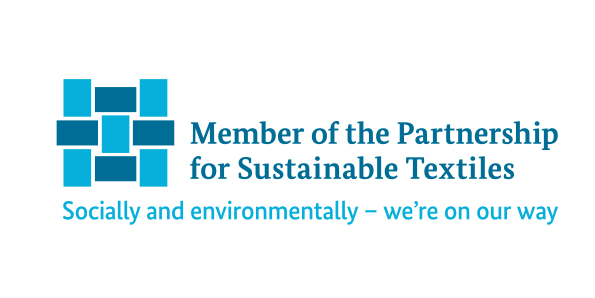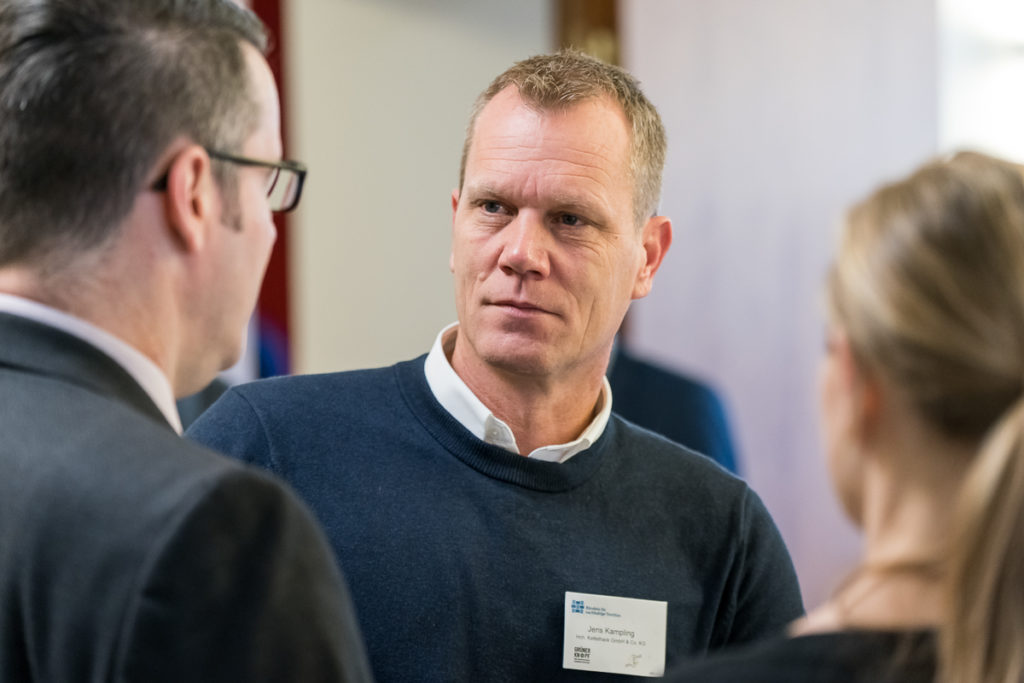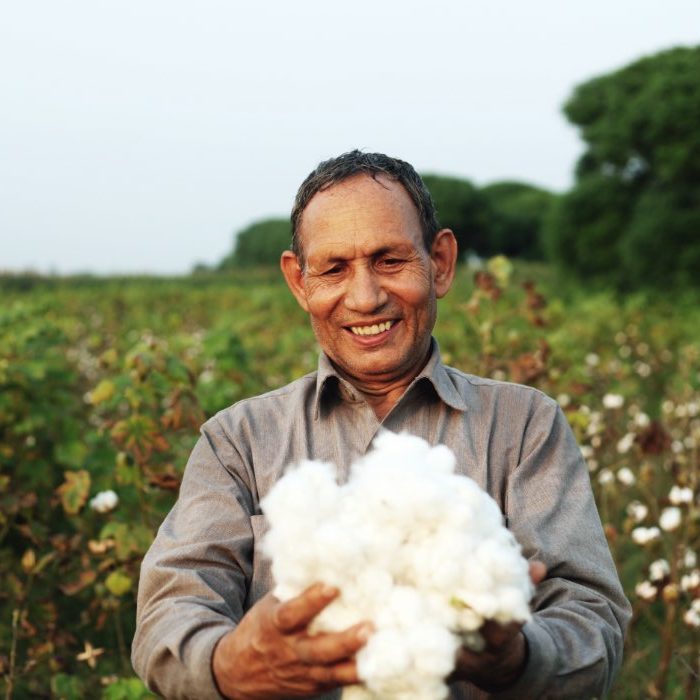Partnership for Sustainable Textiles
Accidents such as the Rana Plaza collapse in Bangladesh in 2013 have tragically brought the issue of social and ecological grievances in global textile production to the public’s attention. The Partnership for Sustainable Textiles is a multi-stakeholder partnership with the aim of achieving social, ecological and economic improvements along the entire textile value chains.
INDICATORS

> GRI 102-11
> GRI 102-12
> GRI 102-13
We are convinced that only the joint initiative of all stakeholders in the textile value chain can lead to a holistic implementation of sustainability in the textile industry. That is why Kettelhack joined the Partnership for Sustainable Textiles in 2015. This partnership is a multi-stakeholder initiative launched by the German federal government. Here, business (companies in the textile sector and associations), non-governmental organisations, trade unions, standards organisations and the German Federal government are committed to achieving social, ecological and economic improvements along the textile value chain. This is done through joint projects on the ground, and by each member shouldering their own individual responsibility.
The Textiles Partnership aligns its work with international agreements and guidelines that define the principles of social, ecological and economic sustainability and set the framework for corporate responsibility. In implementing the goals, the Textiles Partnership is strongly guided by the OECD due diligence guidance of corporate due diligence in the garment and footwear sector.

Networking,
Exchanging knowledge,
Becoming active …
For its members, the Textiles Partnership is a platform for networking, knowledge exchange and joint action. In addition, the progress by the member companies is checked and made visible by means of a review process and action plans.
> GRI 102-29
> GRI 102-30
> GRI 102-31
Our commitment to the Textiles Partnership
As part of our membership, we get involved, for example, by participating in various working groups or through bilateral exchange with other members. By participating in workshops and webinars, we always get new input from experts, learn about best practice examples and exchange ideas with other stakeholders.
However, the core of our commitment in the Textile Partnership is our participation in the joint initiatives of the Partnership. Together we can achieve more than alone: with the purchasing power of the companies, the know-how and the contacts of the non-governmental organisations and trade unions, as well as the influence of the German government, a lot can be achieved in the production countries.
Here is an overview of the partnership initiatives in which Kettelack participates or has participated:
In spring 2019, Kettelhack participated in the Peer Learning Group on effective supply chain grievance mechanisms. In the associated workshop series, the participating member companies not only received a theoretical introduction to the topic, but were also supported in analysing existing mechanisms in their own supply chain. The open exchange of experiences and the support within the group were also very helpful.
We passed on the knowledge gained from this Partnership initiative to our partners in raw fabric procurement during a Suppliers’ Day and also sensitised them to the need for grievance mechanisms.
The Partnership Initiative to strengthen internal complaints mechanisms in Pakistan started at the beginning of 2022. The aim of this cooperation project between Fairtrade Germany, the Deutsche Gesellschaft für Internationale Zusammenarbeit (GIZ) and member companies of the Textile Partnership is to improve internal complaints structures at Pakistani suppliers. Along with Kettelhack, Hugo Boss, Takko, Primark and tex idea are participating in the initiative.
The project is implemented by Fairtrade Germany with a local team. The following measures are planned:
> Awareness-raising of the management for the needs of the workers and training in dealing with incoming complaints.
> Training for workers to inform them about their rights and the use of grievance mechanisms.
> Training on the function and establishment of grievance mechanisms for workers and management.
Further information on the Partnership Initiative can be found here:
The basic module Purchasing Practices of the Living Wage Initiative started in mid-2019. The core of the basic module was the self-assessment of the purchasing practices in the company. The ACT (Action Collaboration Transformation) initiative developed the Purchasing Practices Self-Assessment Tool (PPSA) – an online check that enables companies to analyse the strengths and weaknesses of their own purchasing practices. Kettelhack also used this tool to evaluate its own purchasing practices. Together with the other participating member companies, the results of the self-assessment were discussed and possible measures for improvement were identified.
Based on the PPSA results, various improvement measures were implemented at Kettelhack, for example:
> Conducting internal training,
> Development of a set of indicators for the annual assessment of purchasing practices and
> Improvement of internal communication structures.
With the onset of the COVID 19 pandemic at the beginning of 2020, a special focus arose in the Peer Learning Group. Together, a guide with recommendations for short-term measures during the pandemic was developed and published. The guide can be downloaded => here.
The Living Wage Lab started in September 2021 with the aim of supporting Partnership members in developing and implementing individual living wage strategies and developing scalable solutions together with suppliers. The Lab is another module of the Living Wage Partnership, which already included the basic module on purchasing practices.
A total of 17 Partnership members are participating in the Living Wage Lab, including representatives from companies and trade unions, civil society and the German government. The aim is to exchange experiences on previous projects to raise wages. On the other hand, it is about how pilot projects on wage increases can be implemented together with suppliers and how transparency and purchasing practices can be improved. Further information on the project can be found => here.
Responsible Purchasing Practices
The current Corona pandemic shows that an effective partnership between purchasing companies and suppliers is crucial to protect workers’ rights in the supply chain. But what exactly do we mean by “responsible purchasing practices”?
The basic training answers exactly this question! The video was produced by the Partnership Secretariat with the support of Partnership member ALDI Süd and is now available to all interested parties.
Review Process
With the review process, the Partnership for Sustainable Textiles has developed its own implementation standard and reporting format for due diligence. It represents the individual responsibility of companies to fulfil their due diligence obligations in the supply chain. It focuses on continuous improvement in line with the due diligence requirements of the OECD. Through an ambitious implementation of due diligence, the Textile Partnership members also want to improve the living and working conditions of people in the countries where textiles are produced.
The last review process in 2021 was based on an individual risk analysis, which is oriented towards eleven sector risks. Sector risks include, for example, wages and working hours, greenhouse gas emissions and chemical use. Each company set targets for the most serious risks and defined measures to mitigate the risks. In an evaluation meeting, a tandem of the Partnership secretariat and an external service provider assessed the company’s individual progress since the last review process. The tandem checked, among other things, whether the goals were sensibly and comprehensibly derived from the risk analysis and whether the goals were ambitious. The process is concluded with the publication of the progress reports and the action plans:
Further articles on the topic
Our fibre stars
The high quality and durability of our fabrics already contribute to sustainability. Because the more ...
Fairtrade cotton
The independently controlled Fairtrade label stands for the support of small farmers and workers in the...
Our supply chains
Sustainability in the textile industry means much more than just processing ecologically produced cotton. ...


